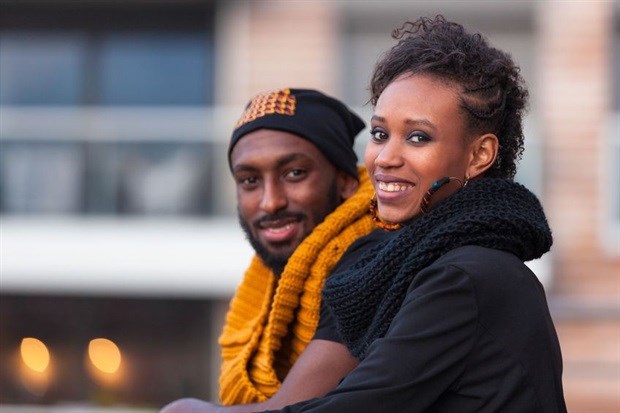
Subscribe & Follow
Advertise your job vacancies
Planting the seeds of an African Renaissance
There is both good news and bad about the future of the youth in Africa. While the youth population is growing rapidly, many don't have the training, skills and economic will-power to create a bright future. Illiteracy and unemployment lead to despair and a negative feeling about their future.

Image by 123RF
Less than half (48%) of high school students in South Africa surveyed this year believe that it’s a great place to have a successful career‚ compared to 74% who had this sentiment in 2012. 25% of African youths are still illiterate despite a rise in primary school enrolment from 60% in 2000 to 77% in 2011.
In West and Central Africa, youth literacy rates are much higher and some countries, such as Malawi and Zambia, still show low youth literacy rates despite universal primary school availability.
(Political scenario analyst) Clem Sunter recently called the youth of South Africa a ticking time bomb. There are 5,217,561 youngsters aged 15-19 and 5,267,118 between the ages of 20 and 24. Unemployment is at 48% in these youth groups across the boards. This could indeed be a recipe for disaster.
Young people under 25 represent three-fifths of sub-Saharan Africa's unemployed population, and 72% of the youth population lives on less than $2 a day. In South Africa, 65% of families earn $2000 a month, but only one in four people in the household is employed. This means that once basics are paid, there is no money left over for education or personal enhancement.
Movers and shakers in Africa
The good news is that there are people all over Africa who are not willing to succumb to this situation. Despite the odds they are taking charge of their lives, pulling themselves up by their bootstraps and discarding the idea that they are disadvantaged. They refuse to be the effect of their environment, education or any other issues. They are the young movers and shakers of Africa.
These young leaders have one thing in common – they’re taking personal responsibility for their lives and their future. They don’t expect anything from anyone. The concept that they are owed something – because of birthright, color, the past, actions of others, Colonialism, slavery, or whatever – has been abandoned.
There are pockets of genius sprouting in Africa. The young people who won the Queen’s Young Leaders Programme are a perfect example. This programme celebrates the achievements of young people around the world taking the lead to transform the lives of others and make a lasting difference in their communities.
Almost half (27 out of 60) of those chosen to receive the award in 2016 are from Africa:
Cameroon (3), Kenya (3), Mauritius (3), Namibia (1), Nigeria (4), Rwanda (2), Sierra Leone (1), South Africa (3), Swaziland (1), Tanzania (2), Uganda (2) and Zambia (2).
Given Edward is one of these winners. He knows all about the difficulties of education in Africa, but he decided to make a difference. His project is MyElimu, an online platform that connects more than 13,000 Tanzanian high school students every month and gets more than three million visitors a year. Elimu is the Swahili word for Education. Edward says the success of the platform is proof that young Africans are able and willing to use the internet for productive purposes, suggesting a bright future for e-learning on the continent.
One of the winners of the Microsoft Imagine Cup is Team Digital Interactive Games from South Africa. Their project, Of Dragons and Sheep, is a fast- paced 3D sidescroller game where the hero must save his beloved sheep from the vicious dragons.
A recent Forbes article identified 30 of the most promising entrepreneurs in Africa in 2016. One of them makes recycled backpacks from supermarket plastic bags. It has a solar panel in the flap that powers a lamp so that students can have light to do their schoolwork and homework. They’ve solved several problems with one bright idea and made it easier for students to get educated.
These young geniuses are not just a few isolated mavericks. There are many bright, innovative young adults in Africa. All our young leaders have to do is decide which side of the equation they want to be on - part of the problem or a solver of the problems. For those who decide to take charge of their own destinies the world is their oyster. Africa will be a much better place in the future because of them.



